Uzbekistan’s First Lady urges greater support for youth climate initiatives at Baku forum
Uzbekistan’s First Lady Ziroat Mirziyoyeva called for greater support for youth-led climate action at the “Youth Leadership in Climate Action” forum held in Baku, Azerbaijan. The event, a key component of this year’s climate and sustainable development agenda, brought together leaders and young climate activists from various nations.
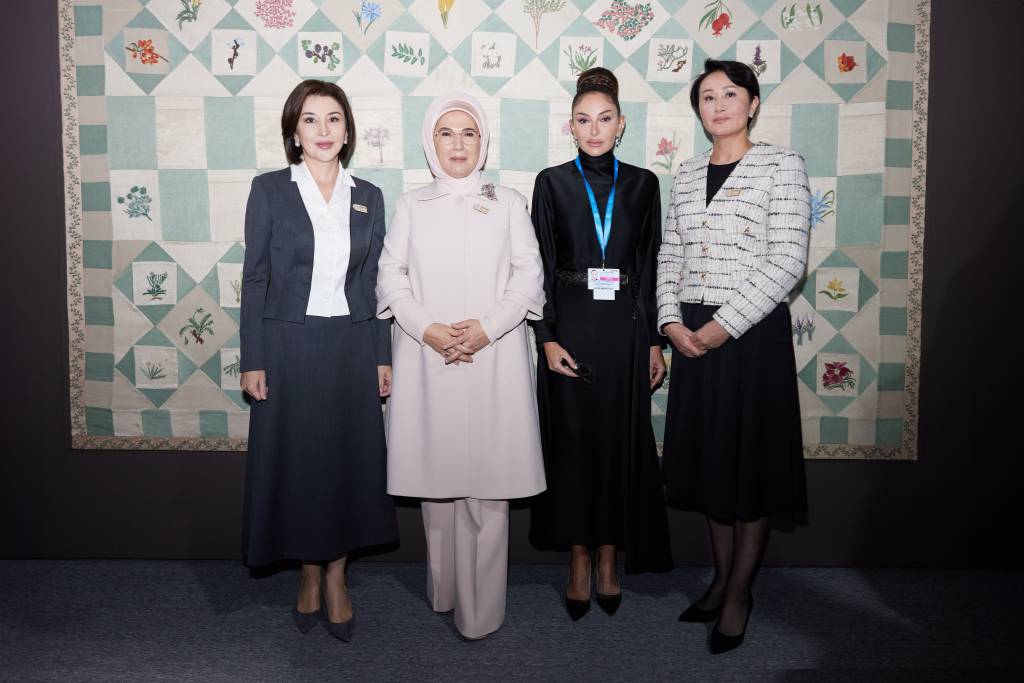
Photo: UzA
Hosted jointly by Uzbekistan and Azerbaijan, the forum saw the participation of First Ladies Mehriban Aliyeva of Azerbaijan, Emine Erdoğan of Turkey, Aigul Japarova of Kyrgyzstan, as well as representatives from Kazakhstan, Tajikistan, Hungary, and various UN agencies and international organizations. Youth eco-activists from each of these countries also attended, showcasing the region's commitment to integrating youth voices in the fight against climate change.
The event began with a viewing of an art installation titled “Indivisible,” crafted by eco-activists using traditional patchwork techniques. Each fabric piece in the artwork represents an endangered plant species from a participating country, symbolizing the inseparable bond between humanity and nature.
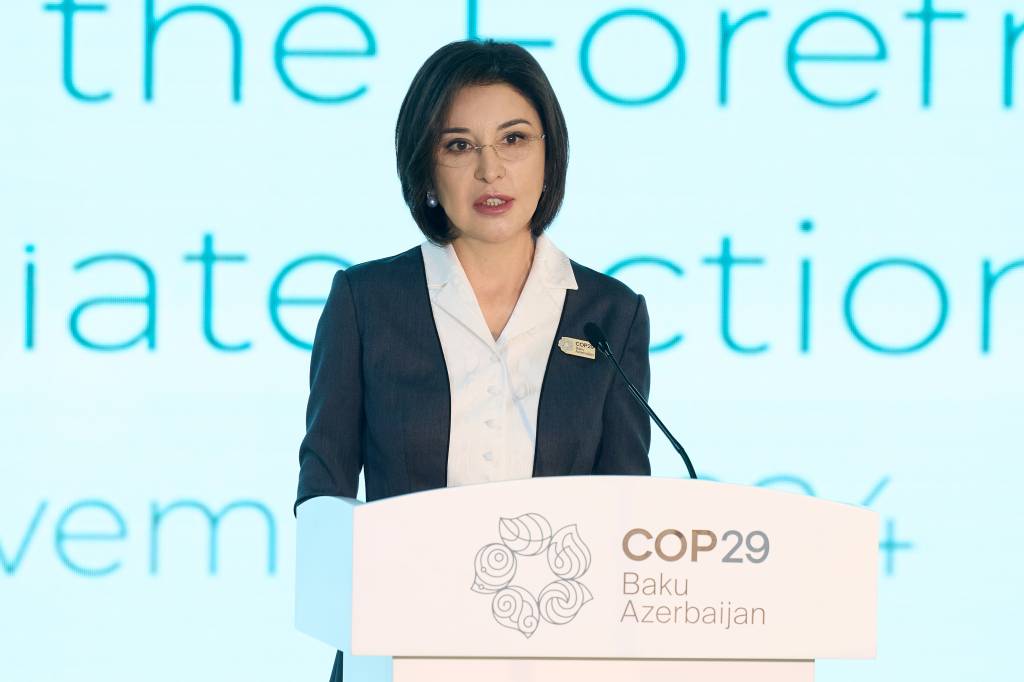
In her speech, Ziroat Mirziyoyeva, who also chairs the Board of Trustees of the international public foundation “Zamin,” congratulated the Azerbaijani government and people on hosting COP-29. She expressed appreciation for First Lady Mehriban Aliyeva’s support for the forum, held in partnership with the Heydar Aliyev Foundation.
Mirziyoyeva emphasized the severe impacts of climate change on younger generations, noting that millions of children and adolescents are increasingly affected by natural disasters, droughts, and shortages of water and food. “Combating these challenges cannot be envisioned without the active and conscious participation of youth,” she stated. “It is an honor to witness Central Asian and Turkic youth becoming an integral part of this global movement.”
During the forum, eco-activists from Uzbekistan, Hungary, Azerbaijan, Tajikistan, Turkey, Kyrgyzstan, and Kazakhstan jointly called on their governments to expand opportunities for young people to engage in climate action. They also presented climate initiatives developed during regional eco-camps, including those held in Uzbekistan, reflecting a growing regional commitment to youth-driven environmental solutions.
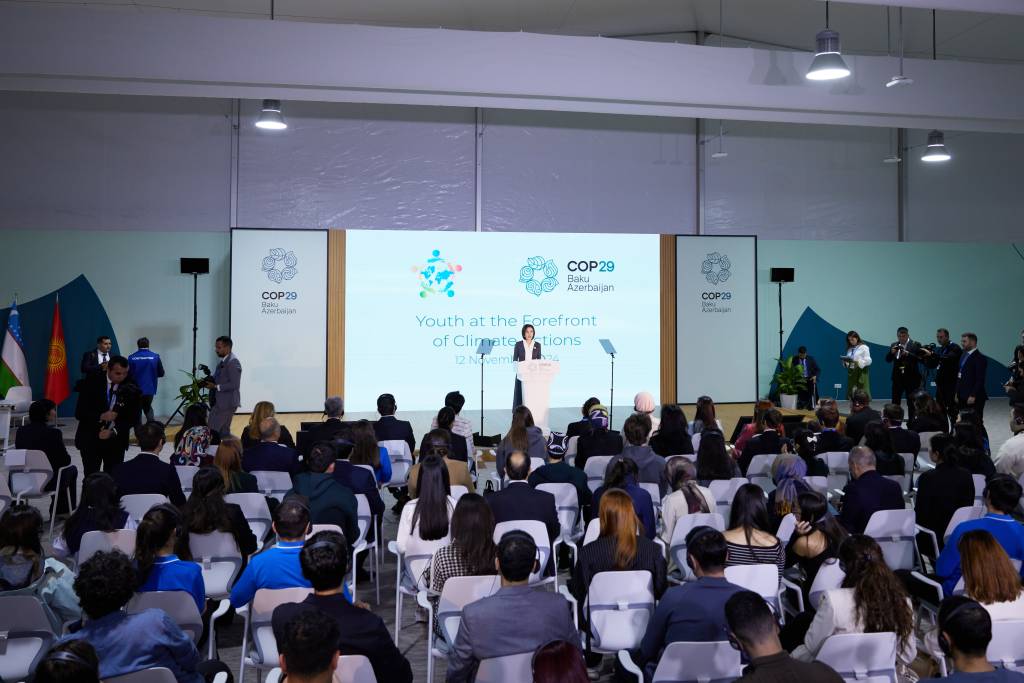
The event’s highlight was the signing of an international strategy for promoting a “Culture of Sustainable Development” for 2024-2030 by Uzbekistan, Azerbaijan, Hungary, Kazakhstan, Kyrgyzstan, Tajikistan, and Turkey. This strategy aims to foster effective collaboration among governments, educational institutions, and civil society groups to encourage children and young people’s involvement in climate action.
Based on recommendations from youth eco-activists, the strategy seeks to create a global foundation for intergenerational cooperation in climate initiatives. It also focuses on expanding youth involvement in ecological projects and promoting environmental education and green skills development among the younger generation.
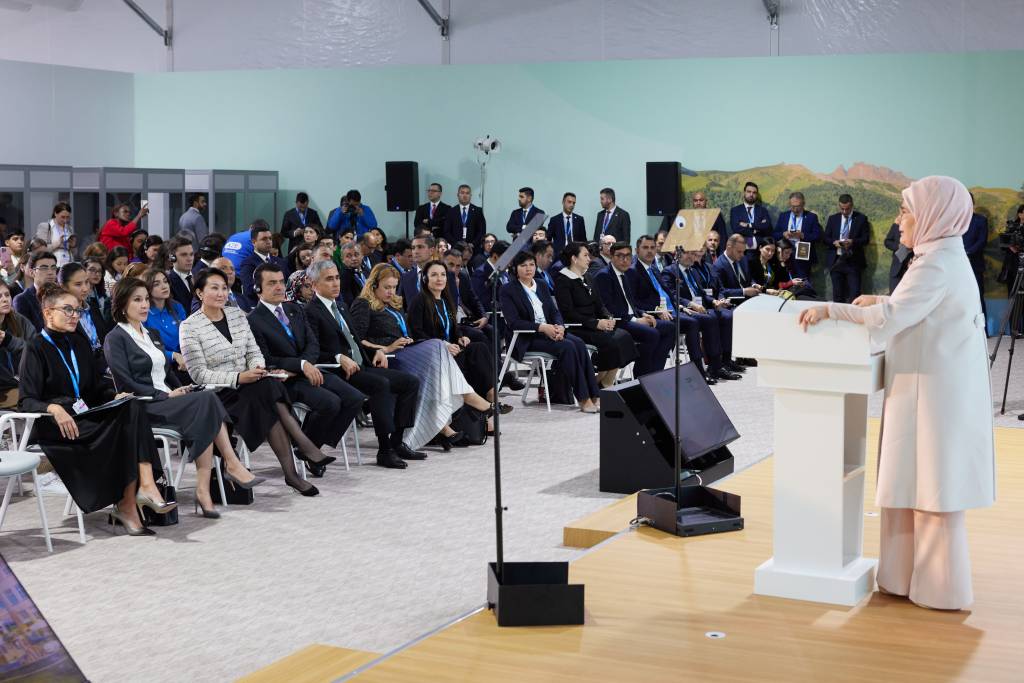
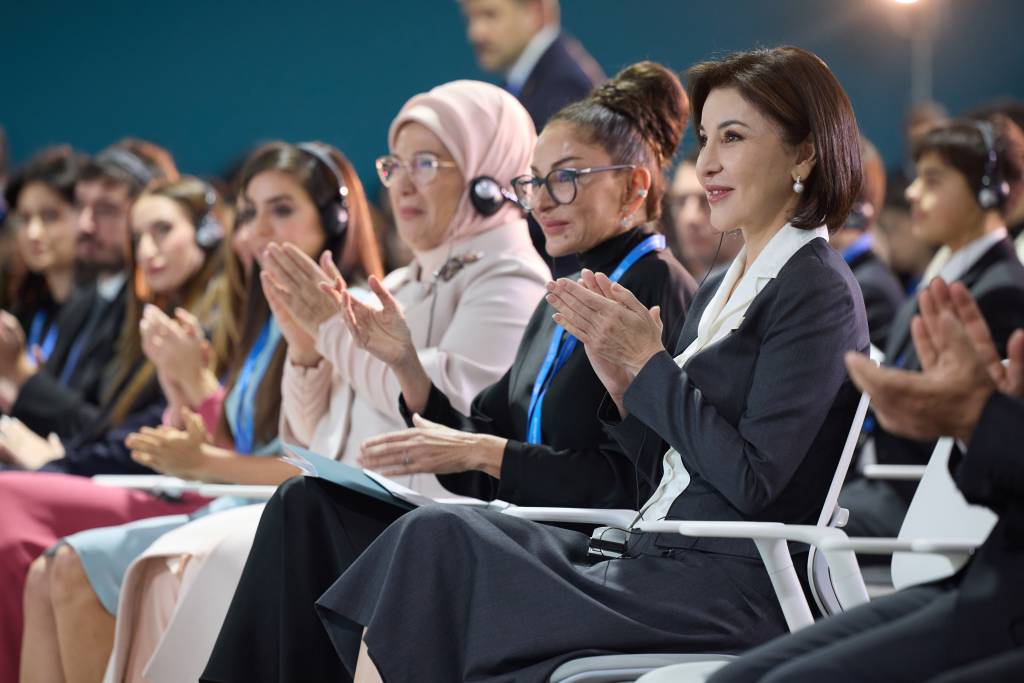
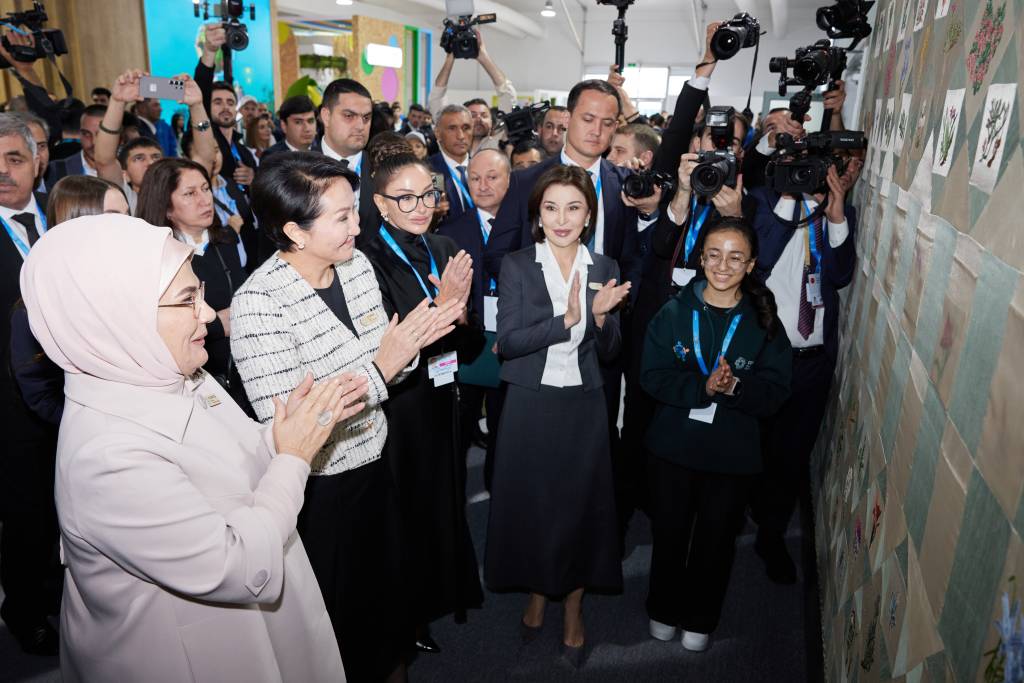
Recommended
List of streets and intersections being repaired in Tashkent published
SOCIETY | 19:12 / 16.05.2024
Uzbekistan's flag flies high on Oceania's tallest volcano
SOCIETY | 17:54 / 15.05.2024
New tariffs to be introduced in Tashkent public transport
SOCIETY | 14:55 / 05.05.2023
Onix and Tracker cars withdrawn from sale
BUSINESS | 10:20 / 05.05.2023
Latest news
-
Direct flight from Tashkent to the Maldives — every Sunday
SOCIETY | 09:00 / 11.07.2025
-
Water debts of households and businesses in Uzbekistan near 800 Billion UZS
BUSINESS | 13:55
-
Kazakh low-cost airline FlyArystan launches direct flights between Atyrau and Tashkent
SOCIETY | 13:41
-
Uzbekistan's Vladimir Svechnikov wins gold at international shooting tournament in Budapest
SPORT | 11:41
Related News
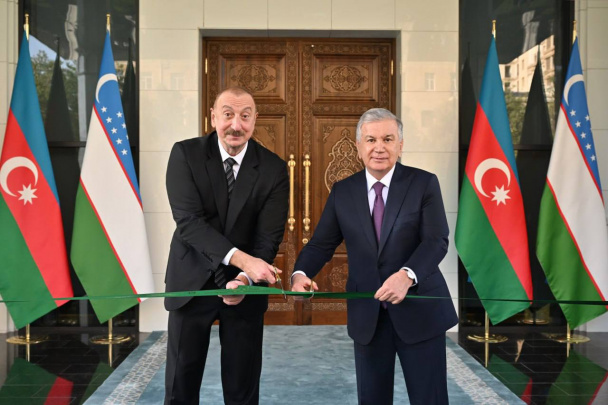
13:57 / 03.07.2025
Uzbekistan’s new embassy building opens in Baku
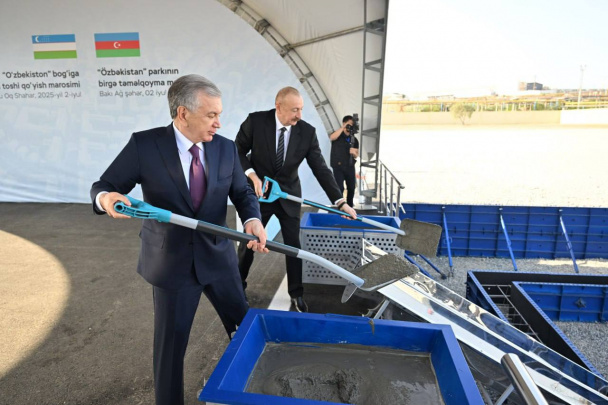
12:09 / 03.07.2025
Uzbekistan-themed cultural park to be established in Baku

19:48 / 10.06.2025
Meteorologists predict cooler June with key implications for farming

19:08 / 10.06.2025



